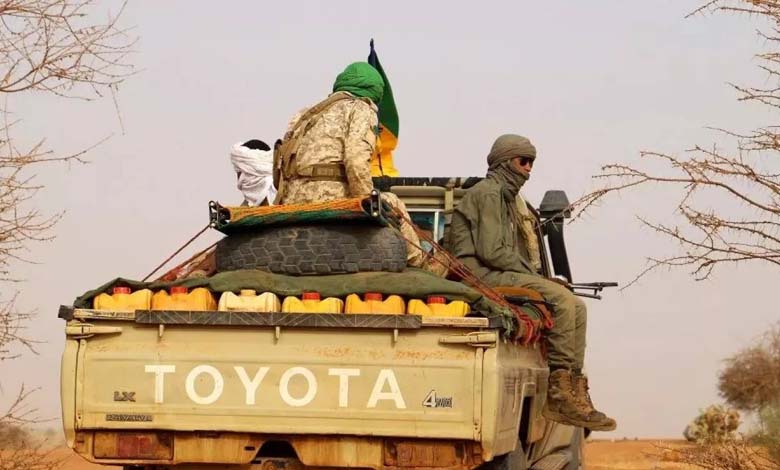Washington urges citizens to leave Mali amid escalating jihadist attacks

The United States issued an urgent warning on Tuesday, calling on its citizens currently in Mali to leave the country immediately via commercial flights, as the security situation continues to deteriorate under growing pressure from Al-Qaeda–linked militants. The Malian government is facing mounting challenges after jihadist groups imposed a blockade on fuel imports, effectively strangling the economy of the landlocked West African nation.
-
Nioro under financial siege: Al-Qaeda’s expansion in Mali
-
Mali in an Existential Test: Al-Qaeda’s Expansion and Mounting Challenges
Since early September, the militant coalition Jama’at Nusrat al-Islam wal-Muslimin (JNIM) has claimed responsibility for a series of attacks targeting fuel convoys bound for the capital, Bamako. The blockade has severely disrupted daily life, prompting the Malian government to order the suspension of classes in schools and universities nationwide for two weeks due to acute fuel shortages.
In an official statement, the U.S. Embassy in Bamako warned that ongoing infrastructure disruptions, including repeated fuel shortages, the shutdown of key
-
Terrorism in the Sahel: Mali Accuses Ukraine and Warns the West
-
Mali accuses Algeria of supporting “international terrorism”: diplomatic showdown at the UN
public services, and continued armed clashes between government forces and insurgents near the capital, have made the situation “highly unpredictable.” The embassy confirmed that Bamako International Airport remains open but strongly advised U.S. citizens to leave the country by air rather than traveling overland, citing the heightened risk of terrorist attacks along highways.
Security analysts describe the fuel blockade as part of a broader strategy to weaken Mali’s military-led government. By cutting off access to essential resources, jihadist groups aim to exert economic and psychological pressure on the authorities while deepening public frustration.
-
Mali Takes Algeria to the International Court of Justice Over Drone Incident
-
African Union Forces Helicopter Crashes in Somalia
The U.S. Embassy further cautioned that it is unable to provide assistance to citizens outside Bamako and advised those choosing to remain in the country to develop emergency plans, including the possibility of sheltering in place for extended periods. The current U.S. travel advisory for Mali is at Level 4, meaning “Do not travel.”
Formed in 2017 through the merger of five militant groups—Ansar Dine, the Macina Battalion, Al-Mourabitoun, Ansar al-Islam, and Al-Qaeda in the Islamic Maghreb’s Sahara branch—JNIM has become one of the most dangerous jihadist organizations in Africa. Emerging from the security vacuum left after French forces defeated separatist and extremist factions in northern Mali in 2012, the coalition has since rebuilt its operational capacity, expanded its territorial influence, and strengthened its logistical networks across the region.
-
Siege, hostages and threats: Al-Qaeda tightens its grip on Mali
-
The June 5 Coalition in Mali… A Broken Dream
Despite reduced Western support, the Malian army, with assistance from Russian advisors, has conducted a series of coordinated operations involving both air and ground strikes against militant training camps and weapon depots. However, these efforts have yet to halt the surge in violence, leaving civilians trapped in a worsening humanitarian and security crisis with no clear resolution in sight.












